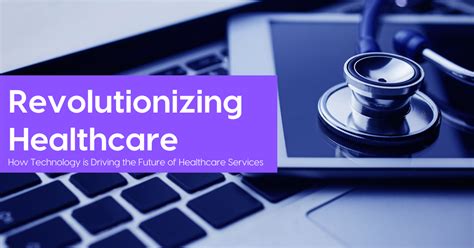Revolutionizing hospital efficiency has become a top priority in the healthcare industry. With the increasing demand for quality patient care, hospitals are under pressure to optimize their operations, reduce costs, and improve patient outcomes. One way to achieve this is by leveraging educational technology (EdTech) solutions. In this article, we will explore the benefits of EdTech in hospitals, its applications, and how it can transform the way hospitals operate.
The Importance of Efficiency in Hospitals
Hospitals are complex organizations that require efficient systems to ensure the smooth delivery of patient care. Inefficient systems can lead to delays, errors, and decreased patient satisfaction. Moreover, hospitals face significant financial pressures, and inefficient operations can result in wasted resources and increased costs. EdTech solutions offer a promising solution to these challenges by providing innovative ways to streamline hospital operations, improve communication, and enhance patient care.
Applications of EdTech in Hospitals
EdTech solutions have various applications in hospitals, including:
- Staff Training and Development: EdTech platforms can provide personalized training and development programs for hospital staff, enabling them to acquire new skills and knowledge. This can lead to improved patient care, reduced errors, and enhanced staff productivity.
- Clinical Decision Support Systems: EdTech solutions can provide clinicians with real-time access to medical information, guidelines, and best practices, enabling them to make informed decisions at the point of care.
- Patient Education and Engagement: EdTech platforms can provide patients with personalized education and engagement tools, empowering them to take a more active role in their care and improving health outcomes.
- Operational Efficiency: EdTech solutions can help hospitals optimize their operations by streamlining processes, reducing waste, and improving communication.
Benefits of EdTech in Hospitals
The benefits of EdTech in hospitals are numerous and significant. Some of the key benefits include:
- Improved Patient Outcomes: EdTech solutions can lead to improved patient outcomes by providing clinicians with real-time access to medical information, guidelines, and best practices.
- Increased Efficiency: EdTech solutions can help hospitals optimize their operations, reduce waste, and improve communication, leading to increased efficiency and reduced costs.
- Enhanced Patient Experience: EdTech platforms can provide patients with personalized education and engagement tools, empowering them to take a more active role in their care and improving the patient experience.
- Reduced Errors: EdTech solutions can help reduce medical errors by providing clinicians with real-time access to medical information, guidelines, and best practices.

Implementing EdTech Solutions in Hospitals
Implementing EdTech solutions in hospitals requires careful planning and execution. Here are some steps to consider:
- Conduct a Needs Assessment: Conduct a needs assessment to identify areas where EdTech solutions can have the greatest impact.
- Develop a Strategic Plan: Develop a strategic plan that outlines the goals, objectives, and timelines for implementing EdTech solutions.
- Select the Right EdTech Solutions: Select EdTech solutions that meet the hospital's needs and are scalable, user-friendly, and compatible with existing systems.
- Provide Training and Support: Provide training and support to ensure that hospital staff are comfortable using the EdTech solutions.
Real-World Examples of EdTech in Hospitals
There are many real-world examples of EdTech in hospitals, including:
- University of California, San Francisco (UCSF) Medical Center: UCSF Medical Center has implemented an EdTech platform that provides clinicians with real-time access to medical information, guidelines, and best practices.
- Mayo Clinic: Mayo Clinic has developed an EdTech platform that provides patients with personalized education and engagement tools, empowering them to take a more active role in their care.
- Boston Children's Hospital: Boston Children's Hospital has implemented an EdTech solution that provides clinicians with real-time access to medical information, guidelines, and best practices, improving patient outcomes and reducing errors.
Overcoming Challenges
While EdTech solutions offer many benefits, there are also challenges to consider, including:
- Resistance to Change: Some hospital staff may resist the implementation of EdTech solutions, citing concerns about job security, workflow disruption, and technical difficulties.
- Technical Challenges: EdTech solutions require significant technical infrastructure, including hardware, software, and network connectivity.
- Data Security and Privacy: EdTech solutions require robust data security and privacy measures to protect sensitive patient information.
Best Practices for Implementing EdTech Solutions
Here are some best practices for implementing EdTech solutions in hospitals:
- Engage Hospital Staff: Engage hospital staff in the implementation process to build support and address concerns.
- Develop a Clear Implementation Plan: Develop a clear implementation plan that outlines the goals, objectives, and timelines for implementing EdTech solutions.
- Provide Ongoing Training and Support: Provide ongoing training and support to ensure that hospital staff are comfortable using the EdTech solutions.
- Monitor Progress and Evaluate Outcomes: Monitor progress and evaluate outcomes to ensure that the EdTech solutions are meeting their intended goals.
Conclusion
In conclusion, EdTech solutions offer a promising solution to the challenges facing hospitals today. By providing innovative ways to streamline hospital operations, improve communication, and enhance patient care, EdTech solutions can help hospitals achieve their goals of improved patient outcomes, increased efficiency, and enhanced patient experience. As the healthcare industry continues to evolve, EdTech solutions will play an increasingly important role in shaping the future of hospital care.





Frequently Asked Questions
What is EdTech?
+EdTech refers to the use of technology to improve education and training in various settings, including hospitals.
How can EdTech improve hospital efficiency?
+EdTech can improve hospital efficiency by streamlining processes, reducing waste, and improving communication.
What are the benefits of EdTech in hospitals?
+The benefits of EdTech in hospitals include improved patient outcomes, increased efficiency, and enhanced patient experience.
